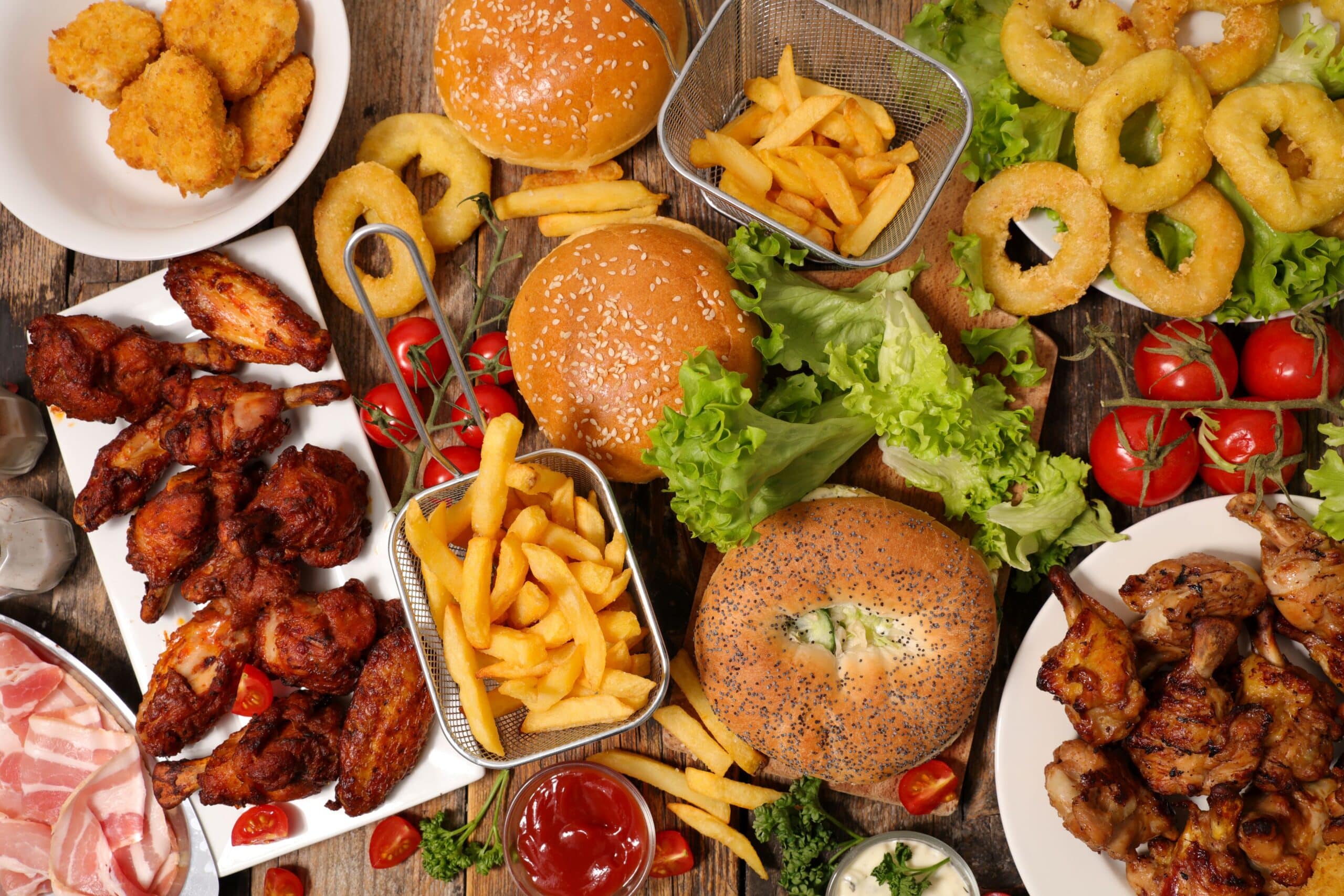Eating more ultra-processed foods (UPFs) may be associated with a higher risk of developing cancers of the upper aerodigestive tract (including the mouth, throat, and oesophagus), according to a new study led by researchers from the University of Bristol and the International Agency for Research on Cancer (IARC).
The authors of this international study, which analyzed diet and lifestyle data on 450,111 adults who were followed for approximately 14 years, say obesity associated with the consumption of UPFs may not be the only factor to blame. The study was published [22 November] in the European Journal of Nutrition.
Several studies have identified an association between UPF consumption and cancer, including a recent study that looked at the association between UPFs and 34 different cancers in the largest cohort study in Europe, the European Prospective Investigation into Cancer and Nutrition (EPIC) cohort.
As more evidence emerges about the associations between eating UPFs and adverse health outcomes, researchers from the Bristol Medical School and IARC wanted to explore this further. Since many UPFs have an unhealthy nutritional profile, the team sought to establish whether the association between UPF consumption and head and neck cancer and oesophageal adenocarcinoma (a cancer of the esophagus) in EPIC could be explained by an increase in body fat.
Results from the team’s analyses showed that eating 10% more UPFs is associated with a 23% higher risk of head and neck cancer and a 24% higher risk of oesophageal adenocarcinoma in EPIC. Increased body fat only explained a small proportion of the statistical association between UPF consumption and the risk of these upper-aerodigestive tract cancers.
Fernanda Morales-Berstein, a Wellcome Trust PhD student at the University of Bristol and the study’s lead author, explained: “UPFs have been associated with excess weight and increased body fat in several observational studies. This makes sense, as they are generally tasty, convenient, and cheap, favoring the consumption of large portions and an excessive number of calories. However, it was interesting that in our study the link between eating UPFs and upper-aerodigestive tract cancer didn’t seem to be greatly explained by body mass index and waist-to-hip ratio.”
The authors suggest that other mechanisms could explain the association. For example, additives including emulsifiers and artificial sweeteners which have been previously associated with disease risk, and contaminants from food packaging and the manufacturing process, may partly explain the link between UPF consumption and upper-aerodigestive tract cancer in this study.
However, Fernanda Morales-Berstein and colleagues did add caution regarding their findings and suggest that the associations between UPF consumption and upper-aerodigestive tract cancers found in the study could be affected by certain types of bias. This would explain why they found evidence of an association between higher UPF consumption and increased risk of accidental deaths, which is highly unlikely to be causal.
George Davey Smith, Professor of Clinical Epidemiology and Director of the MRC Integrative Epidemiology Unit at the University of Bristol, and co-author on the paper said: “UPFs are clearly associated with many adverse health outcomes, yet whether they actually cause these, or whether underlying factors such as general health-related behaviors and socioeconomic position are responsible for the link, is still unclear, as the association with accidental deaths draws attention to.”
Inge Huybrechts, Team head of the Lifestyle exposures and interventions team at IARC, added: “Cohorts with long-term dietary follow-up intake assessments, considering also contemporary consumption habits, are needed to replicate these study’s findings, as the EPIC dietary data were collected in the 1990s, when the consumption of UPFs was still relatively low. As such associations may potentially be stronger in cohorts including recent dietary follow-up assessments.”
Further research is needed to identify other mechanisms, such as food additives and contaminants, which may explain the links observed. However, based on the finding that body fat did not greatly explain the link between UPF consumption and upper-aerodigestive tract cancer risk in this study, Fernanda Morales-Berstein suggested: “Focussing solely on weight loss treatment, such as Semaglutide, is unlikely to greatly contribute to the prevention of upper-aerodigestive tract cancers related to eating UPFs.”
Dr Helen Croker, Assistant Director of Research and Policy at World Cancer Research Fund, added: “This study adds to a growing pool of evidence suggesting a link between UPFs and cancer risk. The association between a higher consumption of UPFs and an increased risk of developing upper-aerodigestive tract cancer supports our Cancer Prevention Recommendations to eat a healthy diet, rich in wholegrains, vegetables, fruit, and beans.”
The study was funded by the Wellcome Trust; Cancer Research UK; World Cancer Research Fund International; Institut National du Cancer; Horizon 2020 ‘Dynamic longitudinal exposome trajectories in cardiovascular and metabolic non-communicable diseases’ study; University of Bristol Vice Chancellor’s Fellowship; British Heart Foundation and the Medical Research Council.
About ultra-processed foods
Ultra-processed foods (UPFs) are industrial formulations manufactured in a complex way using ingredients not usually found in kitchens (e.g., maltodextrin, hydrogenated oils, modified starches) and cosmetic additives (e.g., emulsifiers, flavorings, colorants, artificial sweeteners). They are typically cheap, highly palatable, and widely available ready-to-eat products. As a result, they often replace more nutritious, unprocessed/minimally processed foods in the diet.




